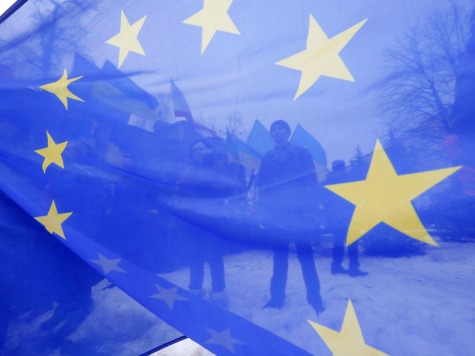
The European Union passed more sanctions against Russia on Monday and Moscow said the sanctions will hurt any attempt at peace in Ukraine. Russia said the West should encourage open dialogue between Kyiv and the pro-Russian forces in the east.
The results of self-rule referendums in the mainly Russian-speaking eastern regions of Donetsk and Luhansk “should be a clear signal to Kiev of the depth of the crisis” in Ukraine, the Russian Foreign Ministry said in a statement.
“Moscow hopes … the EU and United States will use their influence on the current leadership in Kiev so that issues of state structure and respect for the rights of regions are discussed soon – in any case before the election scheduled for May 25,” it said.
The “Donetsk People’s Republic” claimed they won independence in a referendum on May 11 with over 90% voting yes. Just a few hours later, the DPR asked Moscow to join the Russian Federation.
The new EU sanctions primarily target people involved in Crimea’s annexation from March. Unlike the US, the EU did not target the energy sector or anyone very close to Russian Vladimir Putin. The US finally placed sanctions against Igor Sechin, Putin’s right hand man and the president and chairman of Rosneft, which is Russia’s top petroleum company. ExxonMobil, America’s largest gas company, is invested with Rosneft and while the company was not specifically mentioned, plans to drill in Russia’s arctic are in question due to sanctions against Sechin. The US also targeted Bank Rossiya, which is Putin’s preferred bank.
On Monday night, French Foreign Minister Laurent Fabius said “that other countries must share the burden in imposing sanctions on Russia and that any measures should also include the energy and financial sectors as well as defense.” He told CNN that France might review the sale of Mistrel helicopter carriers to Russia. The contract was signed in 2011.
“We have a rule. When there is a contract it will be implemented,” Fabius said. “The decision will be taken next October, but if we make new sanctions it has to apply to the defense, financial and energy (sectors), not only for defense.”
The US has been growing more agitated with the EU for not taking a tougher stance against Russia. In fact, on April 16, the European Commission shared documents with EU leaders that show how sanctions against Russia will affect EU countries’ economies. The categories included energy, finance, and trade.
“The important thing is that the measures are balanced,” said one EU diplomat briefed on the process.
“We can’t have a situation where a set of sanctions ends up having a retaliatory impact on one member state or two or three member states. If there are going to be repercussions from this, they have to be shared out.”
In 1981, the CIA sent President Reagan a memo that said America needed to warn Europe not to rely on Russia for gas and energy. They knew Moscow would use the items as political tools.

COMMENTS
Please let us know if you're having issues with commenting.